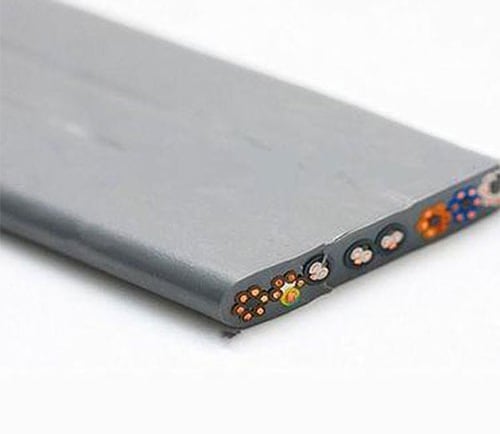Choosing Safe Elevator Cables: Parsing Different Types
Elevator cables are the unsung heroes of vertical transportation, playing a critical role in ensuring the safety, reliability, and efficiency of elevator systems. Whether you're involved in constructing new buildings or modernizing existing ones, understanding the nuances of elevator cables is paramount. This blog post aims to guide you through the essentials of selecting safe elevator cables by parsing different types available in the market today.
9/16/20242 min read


Why Elevator Cables Matter
Elevator cables serve as the lifeline of any elevator system, responsible for bearing substantial loads while maintaining operational safety. These cables undergo rigorous testing and adhere to stringent safety standards to withstand the stresses of daily use. Choosing the right type of elevator cable can significantly impact not only the performance but also the longevity of the entire elevator system.
Types of Elevator Cables
Steel Core Elevator Cables: Known for their strength and durability, steel core elevator cables are the most commonly used type. They consist of multiple steel strands wound around a central core, providing excellent tensile strength and resistance to wear and tear. These cables are ideal for high-rise buildings where heavy loads and frequent use are expected.
Traction Elevator Cables: Designed specifically for traction elevators, these cables utilize a flat or round profile and are often made from materials like steel or synthetic fibers. Traction elevator cables are engineered to provide smooth and efficient movement by gripping the elevator's pulley system, ensuring reliable vertical transport.
Hydraulic Elevator Cables: Hydraulic elevator systems rely on fluid-driven pistons rather than traditional cables for movement. However, hydraulic elevator cables are still crucial components, typically designed to manage hydraulic fluid lines and ensure operational safety.
Key Considerations When Choosing Elevator Cables
Load Capacity: Assess the maximum load requirements of your elevator system to determine the appropriate cable strength and diameter.
Safety Standards: Ensure that the elevator cables meet or exceed industry safety standards such as ASTM or EN regulations to guarantee safe operation.
Environmental Factors: Consider environmental conditions such as temperature, humidity, and exposure to chemicals, which can affect the longevity and performance of elevator cables.
Maintenance Requirements: Different types of elevator cables may have varying maintenance needs. Understanding these requirements can help prolong the lifespan of your elevator system.
Benefits of Choosing High-Quality Elevator Cables
Investing in high-quality elevator cables offers several advantages:
Enhanced Safety: Reliable cables reduce the risk of elevator malfunctions and ensure passenger safety.
Improved Efficiency: Efficient cables contribute to smoother elevator operation, reducing downtime and improving building accessibility.
Longer Lifespan: Quality materials and construction techniques enhance durability, resulting in longer service life and reduced maintenance costs.
Conclusion
In conclusion, selecting safe elevator cables involves understanding the specific requirements of your elevator system and choosing cables that not only meet those requirements but also exceed them in terms of safety, efficiency, and durability. Whether you opt for steel core cables, traction cables, or hydraulic cables, each type has its unique advantages and applications. By prioritizing safety standards and quality, you can ensure reliable vertical transportation that meets the demands of modern buildings.
For more information on elevator cables or to discuss your specific project needs, contact us today. Elevator cables are not just components; they are critical investments in the safety and efficiency of your building's vertical transport system.
Remember, when it comes to elevator cables, safety and quality should never be compromised.
This blog post provides a comprehensive overview of choosing safe elevator cables by examining different types available in the market. By focusing on key considerations and benefits, it aims to enhance understanding and decision-making for professionals involved in building management and construction.
